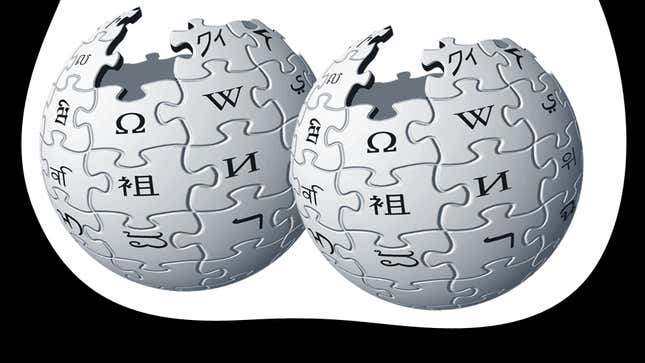Wikipedia's Editors Are 91 Percent Male Because Citations Are Stored in the Ball Sack
Latest

Wikipedia, the collaborative encyclopedia that’s edited by you (if you’re a dude), me (if I were a dude), and all the dudes you know, launched in 2001 and quickly became the place to find quick info on pretty much any topic under the sun. Remember writing research papers before Wikipedia? Man, we were all such chumps with our “books.”
Despite being one of the most heavily visited sites on the web, women comprise just 9 percent* of all Wikipedia editors. Why is that? Oh, you know, the usual — gender bias in general, extreme gender bias in tech, and the hostile culture that can create for women.
Sarah Stierch (pictured below), a long-time Wikipedia editor and research fellow with the Wikimedia Foundation, is pushing for more female participation on the site. She believes the first step in solving the problem is understanding it.

“The average Wikipedia editor is a well-educated white male. Well-educated white males have been writing history and the story of the world since ancient times,” says Sarah Stierch, a long-time Wikipedia editor and research fellow with the Wikimedia Foundation.
-

-

-

-

-

-

-

-

-

-

-

-

-

-

-

-

-

-

-

-

-

-

-

-

-

-

-

-

-

-

-

-

-

-

-

-

-

-

-

-








































